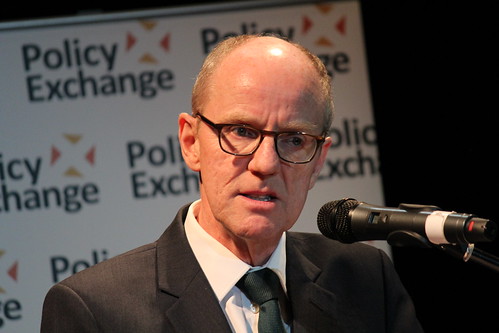Schools minister ‘doesn’t know’ how many schools will close after ‘new evidence’ of unsafe concrete emerges
Nick Gibb #NickGibb

The schools minister has said that the emergence of “new evidence” over the safety of the concrete in some schools led to yesterday’s announcement about the full or partial closure of over 150 schools.
Nick Gibb also revealed to Sky News this morning that he does not know how schools will have to completely close due to concrete safety fears.
It comes after yesterday’s announcement was triggered by new concerns over RAAC, a lightweight, bubbly form of concrete that is usually found in roofs and occasionally in walls and floors.
It was only in June that ministers launched a government-wide inquiry into the use of such concrete in public buildings after government attention was first turned to the use of the concrete in schools in 2018 following the collapse of the roof of a primary school in Kent collapsed.
The Department for Education has said it contacted 104 more schools in the wake of analysis of new cases after 52 of the 156 educational settings containing the concrete took protective steps so far this year.
The department said a “minority” will need to “either fully or partially relocate” to alternative accommodation while safety measures are installed.
The DfE’s guidance to schools said funding will only be provided for works that are “capital funded” and schools will have to pay for rental costs for emergency or temporary accommodation.
While RAAC looks like standard concrete, compared with the “traditional” reinforced material, which is typically denser, experts say RAAC is weak and less durable. The material has been favoured in construction projects in the past because of its lightweight thermal properties.
RAAC has a life expectancy of little more than 30 years, which means that buildings constructed from the 1950s to the 1990s that have not been checked by structural engineers are at risk of collapse.
Asked this morning about the problem, Mr Gibb said: “We don’t know yet [how many will have to shut completely]. We’re talking to the schools.”
“In most cases it will be just a few buildings or a few rooms, or indeed just a cupboard, but in some cases it will be the whole school. And in those circumstances we will be finding alternative accommodation for the pupils and they’ll be out of face-to -face education for a very short period”, he told Sky News.
Mr Gibb said the average length of each school closure will “six days”, but added: “We want it to be even less than that.”
He also confirmed more schools are likely to be closed as not all surveys have come in yet.
Costs will be covered by the government, including if “in the worst case scenario” Portakabins are needed, he confirmed also.
Mr Gibb admitted that not all schools have been contacted yet, although “the vast majority have”.
He said: “We’ve been calling them yesterday, but there’s a few more that we’re calling today, and those schools are now talking to parents about what’s going to happen in their schools.”
Asked what the government’s message is to affected parents and students, Mr Gibb said ministers “totally understand their frustrations”, but said the priority has to be safety.
Asked why this announcement was made just days before the end of the summer holidays, Mr Gibb insisted the government has been “very proactive” having previously issued safety notices since 2018.
In the 2021/22 academic year, the government surveyed schools across the country and took action “where the RAAC was critical”.
But he said “new evidence emerged” over the summer, they found a number of schools “where RAAC we thought was safe, that was not critical in its condition, actually turned out to be unsafe”.
“Because of that emerging evidence over the summer, we’ve changed our guidance,” he said.
It has also been confirmed that hospitals have also been affected by issues related to crumbling concrete.
In 2021, NHS England hospitals sounded the alarm over materials used in roofs that reached the end of their lifespan more than a decade ago, with one hospital forced to restrict the use of some operating theatres to lighter patients.
And in 2022, NHS bosses said that dangerous roofs at risk of collapse would not be fixed until 2035.
“Right across the public sector, we are surveying the estate”, schools minister Nick Gibb has told the BBC. “You’ve heard of a court closing at Harrow. We are taking action, of course, in the hospital sector as well”
Shadow education secretary Bridget Phillipson has said: “We haven’t seen the full list of schools affected. We don’t know where they are, ministers should come clean with parents and set out the full scale of the challenge that we’re facing.
“I expect ministers next week in the House of Commons to publish that data and tell parents and tell the public exactly where the problems are.”